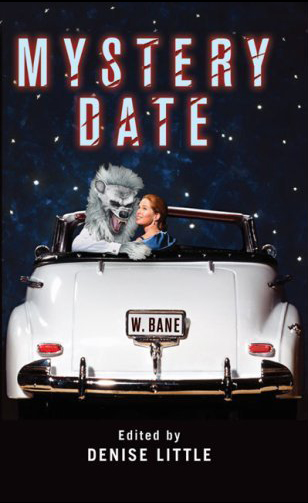In Publishing News . . .
I have a new story out in the DAW anthology, Mystery Date. The tale, “Motivational Speaker,” involves a man’s rather unusual relationship with a stereo system he purchases from a department store. Check it out.
In Writing News . . .
I finished a new story — one involving a famous Civil War sword, a ghost, and a black boy who faces a test of character in the face of the worst kind of bigotry. I enjoyed writing it — which doesn’t always mean it’s publishable, but it’s a good sign.
Otherwise, it’s back to the novel in progress. Not writing nearly as many short stories these days, and that’s by design. While I do love the form, and have no plans to stop writing them, it does come down purely to economics. That may sound crass, and I guess it is, but if your main goal is to eventually make a living writing fiction, then you do have to pay attention to the numbers.
Think of it this way. Except for some of the very best short story markets out there (The New Yorker, etc.), most professional level markets for short fiction pay between six and ten cents a word. (And there’s a ton of markets, some quite respectable, that pay considerably less.) If you apply that six cent word rate to a 100,000 word novel, that nets you $6000.
Six grand is pretty much the bottom for a professional-level novel advance. Most publishers pay considerably more — and it can rise quickly as you establish your audience, whereas short stories won’t net you all that much more even if you become a bestseller (slightly more, sure, but not nearly as much an increase you’ll get with your novels). Plus you have to remember that this doesn’t include royalties, foreign sales, movie rights, and a myriad of other ways that novels make money beyond the initial advance. Yes, you can’t count on those, but they’re much more likely with novels than with short stories.
So if you’re a writer with young children and a day job — which translates into a limited amount of time for your fiction — then you have a choice to make. Even writing novels exclusively, it’s tough to make a living doing it, and if you write short stories exclusively, it’s pretty much impossible in the present day.
Does this mean a writer who wants to make a living at his craft should forgo short stories completely? Not hardly. Of course, there’s the sheer love of them, but there are other reasons, too. A reader might buy an anthology for a magazine because it has his favorite author in it, then read your story and get interested in finding books by you as well. Plus if you do build up an audience for your novels, you can release your short stories in a collection and make more money that way. And a popular short story can be resold many times, too, appearing in Best of the Year collections and the like.
So there are great reasons — even beyond a love of the form — for writing short stories. But if you want to make a living from your fiction, you really have no choice but to write novels. The good news is that squeezing in some short stories now and then is good from a publishing career point of view as well.

